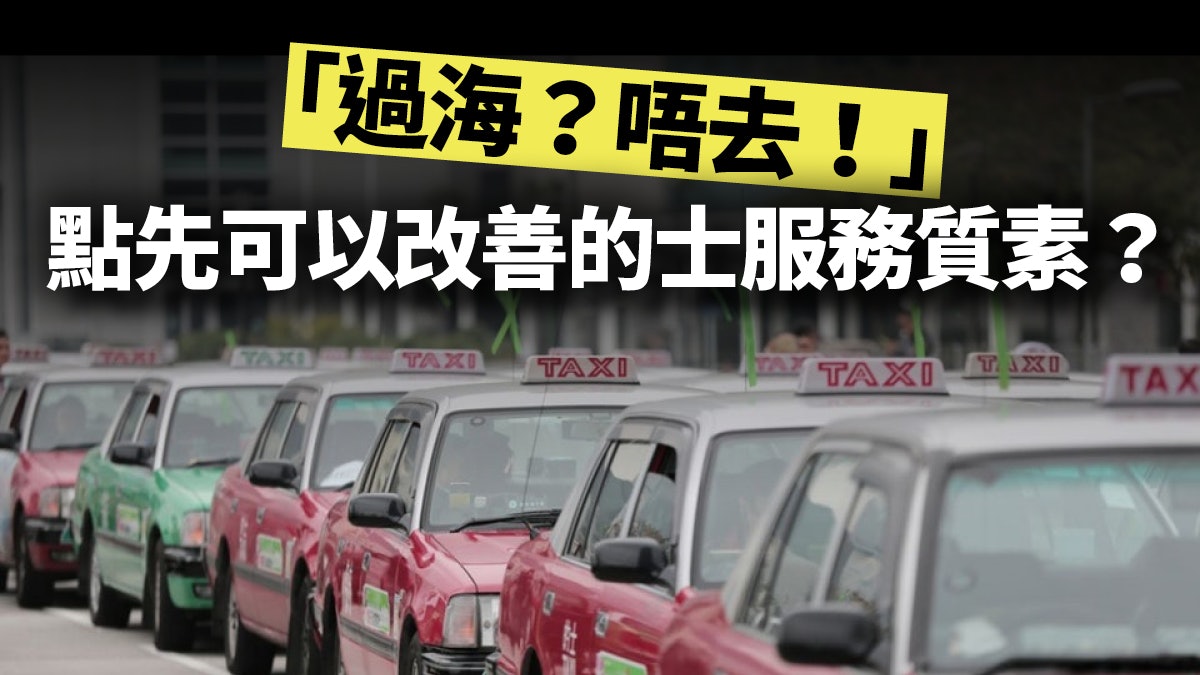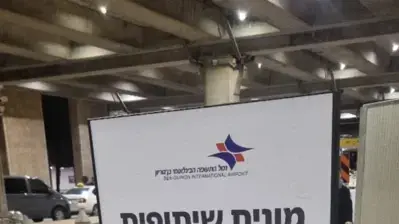01 perspective
Written by: Comment Editor
2020-01-06 17:45
Last updated: 2020-01-06 17:45Crowds of dissatisfaction with the quality of taxi services have grown in recent years. The Legislative Council's Committee on Franchised Taxi Services Bill held its first public hearing on Monday (6th). Representatives of some 60 groups attended. Many industry representatives opposed the introduction of franchised taxis and believed that joining the competition would hurt business. How to strike a balance between the interests of citizens, drivers and licensees has become a test for the government.
Complaints about taxi services have soared from 7,051 in 2006 to 11,000 in 2018, of which 25% complained of refusing carriage and 19% complained of impoliteness of drivers. (Profile picture)
Service quality "price the goods"?
Complaints about taxi services rose from 7,051 in 2006 to 11,000 in 2018, of which 25% complained of refusing carriage and 19% complained of impoliteness of drivers. At present, the government has not done much. One of the reasons is that taxi licences are privately owned and the authorities have limited control over them. The Deputy Secretary for Transport and Housing, Mr Su Wai-man, stated clearly that the Government's plan was to improve the quality of point-to-point transport services. The franchise period is five years, cannot be transferred or renewed, and the government clearly specifies the service level requirements in the terms, including vehicle types, cabin facilities, "Internet contract" arrangements, safety requirements, driver training, customer service, and complaint handling. Wait. The government can impose penalties on operators who do not require it. The more serious ones can even revoke the right to operate. The government can monitor the quality of franchised taxis more effectively than ordinary taxi licenses.
However, this policy ignores that the most fundamental problem is that the license fee is always too high, and the pressure of taxi drivers is huge, resulting in many drivers neglecting the quality of service for profit. For example, the problem of refusal to load is caused by the fact that taxi drivers do not want to pick up short-distance passengers, pass through traffic congestion areas, or do not want to return to the "empty car" for profit. According to survey data from the Transport Department, the average monthly income of drivers in 2018 was RMB 33,326, but only RMB 18,648 after deducting operating costs, which is about 8% lower than the average monthly salary of the overall transportation industry of HKD 20,297 during the same period. According to the taxi car website, taxis in urban areas now cost between 300 and 400 yuan each, with slight increases or decreases depending on the time of day. Calculated on the 22nd of each month, the monthly rental expenses can reach 8,800 yuan or more. The cost of renting a taxi is very high. If the driver wants to make more trips during the rental period, after hearing the guests' "unsatisfactory" destination, refusing to carry the car will become the "choice" of the driver.
The arrangements and scale of franchised taxi schemes are not sufficient to enhance the overall quality of the industry. (Profile picture)
600 taxis helpless at all
Furthermore, the arrangements and scale of franchised taxi schemes are not sufficient to enhance the overall quality of the industry. First of all, the government proposes that the starting price of franchised taxis be 36 yuan, deliberately reducing the price competition between franchised taxis and currently licensed taxis, which is tantamount to the situation of poor taxi service "only eyes open and eyes closed". As stated by the Competition Commission on the submission to the Legislative Council Bills Committee on December 23, the government should, through the tender process, require franchise bidders to compete with each other at a fee level without sacrificing service quality, not by the government Actively limit the competitiveness of franchised taxis. If franchised taxis can provide better services than ordinary taxis at similar prices, Hong Kong should be happy to introduce competition instead of maintaining existing licensed taxis everywhere.
In terms of scale, the government's franchised taxi scheme involves only 600 taxis, accounting for only 3% of the 18,000 taxis in Hong Kong. Franchised taxis can provide more high-quality point-to-point transportation services for Hong Kong people, and provide similar "online" car services. However, the chances of changing the industry with 3% of vehicles are slim. Su Weiming said that franchised taxis are not intended to ban existing taxis, and reiterated that they are not in the same position, nor do they have to compete directly with ordinary taxis. The "franchised taxis" plan has started from its purpose and has changed its will See insufficient. The purpose of the scheme is to provide an additional service rather than to improve the overall quality of the taxi industry.
Taxi drivers do not want to "choose passengers" to eat, but it is always the public who suffers the consequences, and the government must face problems. (Profile picture)
Number of taxi licences to be reviewed
According to the taxi license trading agent, data from the Hong Kong Taxi Exchange show that the transaction price of urban taxi licenses in 2019 will hover between 4.96 million and 5.61 million each. The sky-high price has caused 80% of car rental drivers in the industry to have little choice but to endure heavy rents. Taxi drivers do not want to "choose passengers" to eat. In addition, it is the public who suffers the consequences. The government must face problems.
The thorough way to change the current taxi industry ecology should be to expedite the review of the number of franchised taxis and reopen the application for taxi licences. In addition, the number of licenses to be issued in the future should be far more than the 600 planned this time, in order to lower the price of ordinary taxi licenses by issuing licenses, and break the current situation of "high-priced taxi licenses". Looking back on the disadvantages of issuing permanent taxi licenses in the past, the government has taken the initiative to create "Vested Benefits". The new government license should be based on the franchise taxi system this time to limit the future license period, transfer authority, and service quality. As a renewal consideration, etc., to avoid a new round of licensing errors to create another group of vested interests.
Such changes affect vested interest groups, and the road to reform is bound to be difficult. But the problem has plagued Hong Kong for many years, and the government must still face it squarely and seek a cure. It must be understood that 600 taxis are not enough to change the taxi industry ecology. The government is doing its best to avoid "franchised taxis" competing with existing taxis. It is essentially the same as an ostrich and ignores the crux of the problem.
01 perspective
Taxi Quality Taxi Transport and Housing Bureau Transport Department 01 Views











/cloudfront-eu-central-1.images.arcpublishing.com/prisa/KMEYMJKESBAZBE4MRBAM4TGHIQ.jpg)



